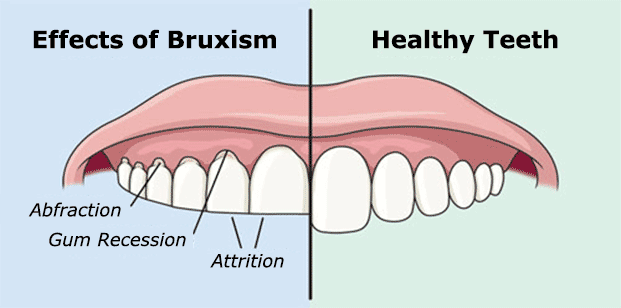 Have you ever been told that you grind your teeth while sleeping? Although quite common, teeth grinders have no idea that they are suffering from this sleep disorder called bruxism. Some people grind their teeth while awake, but a greater concern is placed on those who do it while they are sleeping. This is because teeth grinding tends to be much more violent and with greater force when its done subconsciously in your sleep.
Have you ever been told that you grind your teeth while sleeping? Although quite common, teeth grinders have no idea that they are suffering from this sleep disorder called bruxism. Some people grind their teeth while awake, but a greater concern is placed on those who do it while they are sleeping. This is because teeth grinding tends to be much more violent and with greater force when its done subconsciously in your sleep.
Why Do People Grind Their Teeth
There are still uncertainties surrounding the actual causes of sleep bruxism. But what’s known is that work related stress and anxiety tends to trigger this behavior. Often times, teeth grinders also suffer from other forms of sleep disorders like snoring or sleep apnea. Teeth grinding is usually not an isolated condition and may be an indicator that the individual’s overall health may be trending downward.
How Do I Know If I Grind My Teeth
Because teeth grinding happens while you’re sleeping, you really don’t know that you’re doing it. However, because the grinding can be so violent and aggressive, your spouse or partner has no problem hearing it and will usually let you know. Other signs of teeth grinding are sudden feelings of soreness around your jaw and constant feelings of headaches or even migraines. Your dentist can also determine quite easily if teeth grinding activities are occurring during routine dental checkups.
How Does Teeth Grinding Affect My Oral Health
Chronic bruxism or teeth grinding, can be detrimental to your teeth, gums, and overall oral health. The powerful forces exerted on your teeth can literally grind them down to a stump over time. Biting surfaces on your teeth are flattened, affecting the way you chew. Teeth enamel becomes aggressively worn and conditions like tooth sensitivity and decay will arise. Eventually, your teeth will be fractured, loose, or fall out.
Bruxism Affects Your Physical Appearance And Well Being
As your teeth wears down, the contours of your face and smile will change. Your mouth closure and jaw alignment will continue to distort due to the shortening of your teeth. This may lead to other conditions like TMJ (temporal mandibular joint), where you’ll experience greater headaches and migraines.
Is There A Treatment For Bruxism
It is very important to address early signs of teeth grinding. Since it’s usually connected to high levels of stress and anxiety, it’s best to take measures to help lower your stress level. Exercising more and eating a healthier diet have been proven to be great methods to lowering stress. In addition, try dimming the lights before bedtime as well to help your body relax before falling asleep. If you are already experiencing headaches or jaw pain, you should seek your dentist immediately. Your dentist can recommend certain treatment to help alleviate the strain on your teeth and jaw. Ask your dentist if a night guard or an occlusal splint is right for you. A night guard is a soft custom made mouth piece worn while you are sleeping and is a great way to prevent further wearing on your teeth and also reduce the pressure on your jaw. An occlusal splint is like a night guard but more rigid and made to protect your temporal mandibular joint by keeping your jaw in a specific position while you are sleeping. An occlusal splint is made for people who have severe symptoms and signs of buxism.
Thank you for reading and remember to Like Us on Facebook and never miss another blog!
Written by Dr. Kim H. Nguyen

Owner of Mint Dental OC and is a leading dentist in Southern California.
